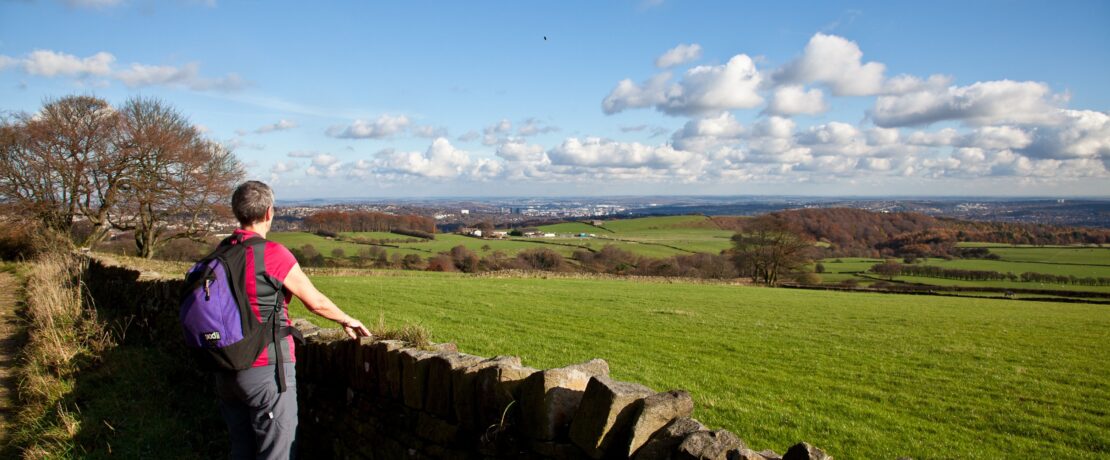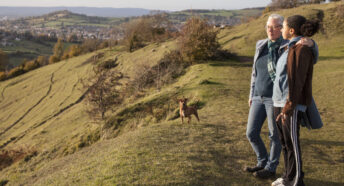Labour manifesto: CPRE analysis
The Labour, Conservative and Liberal Democrat manifestos have now been published. But will they deliver for our countryside and rural communities? Keep reading to find out how much the Labour manifesto lines up with our own manifesto asks.
CPRE have issued a manifesto calling for 16 policies that we want the next government to deliver, and below you’ll find an overall summary of the Labour manifesto in terms of how it shapes up as compared to our own. Manifestos are not an exhaustive list of all a political party’s policies. With this in mind, we have contacted the parties about our analysis and asked for further clarification on missing areas.
The following is only an analysis of the major party’s manifestos against our own manifesto asks. CPRE remains politically neutral and is not encouraging people to vote for any specific party.
Our manifesto for the countryside
The next government will be faced with tackling the climate emergency, ecological collapse, high costs of living, widening inequality in the housing market, and ensuring food and energy security. The countryside is vital for our country’s future, and the climate and nature crises will have enormous implications for how we use our land.
Our manifesto sets out a route towards creating thriving rural communities and resolving the pressures on our countryside and calls on all political parties to recognise the value of the countryside and its essential role in answering our nation’s challenges. In the analysis below, we will list the sixteen policies in our manifesto and consider whether the party manifestos shape up in comparison.
Summary
For those in a hurry, we can save you a bit of time and give you a summary of the Labour manifesto in terms of how it shapes up as compared to CPRE’s. In terms of affordable housing delivery in rural areas, there is reference to making houses more affordable but little on redefining it. There are some positive commitments to prioritising the building of more social homes but no numerical targets. While there is no mention of abolishing hope value, the manifesto does signal reforms to improve housing delivery. The manifesto is weak on tackling short-term lets.
There are encouraging signs on protecting the Green Belt and countryside, though we remain concerned about releasing ‘grey belt’ land without proper regulation. There are encouraging mentions of new wetlands and woodlands, but no concrete targets, and there is no mention of creating new parks. The encouraging points relating to access are let down by lack of policy detail.
On rooftop solar, although there are some encouraging signs on community-led schemes, and a clear commitment to clean energy, there’s very little in the manifesto about rooftop solar, which is disappointing. In terms of planning, there are some positive commitments to a land use framework as well as sustainable development, but a lack of detail. There are commitments to a brownfield-first approach which is very encouraging. Community involvement in planning is mentioned but it lacks a level of commitment.
Fixing the broken housing market
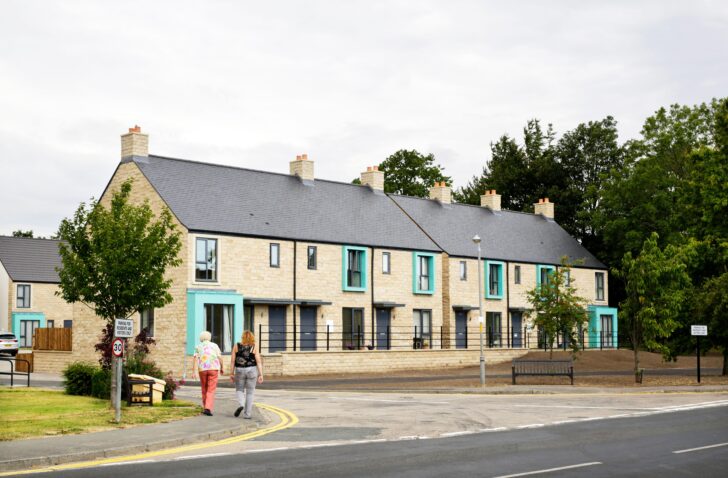
A healthy home is the foundation for a decent life. In summary, our manifesto calls for:
- 1) Redefining ‘affordable’ in line with local incomes not market rates
- 2) Setting new targets for new social and genuinely affordable housing
- 3) Abolishing hope value to get more social housing built
- 4) Tackle short-term lets in rural hotspots
1) Redefining ‘affordable’
CPRE:
Labour:
The manifesto mentions:
- ‘We will […] make changes to the Affordable Homes Programme to ensure that it delivers more homes from existing funding.’
- ‘Labour will prioritise the building of new social rented homes and better protect our existing stock by reviewing the increased right to buy discounts introduced in 2012 and increasing protections on newly-built social housing.’
There is reference to their aim to ‘make housing more affordable’ but this does not go into detail about connecting this to local incomes or the redefinition of the term. We would have liked for this to be explicitly included; however, they have promised to prioritise the delivery of social housing which might have a similar practical effect as our policy ask, although this would be stronger if there were specific targets included.
2) Social and affordable housing targets:
CPRE:
Labour:
The manifesto mentions:
- ‘Labour will deliver the biggest increase in social and affordable housebuilding in a generation.’
- ‘We will strengthen planning obligations to ensure new developments provide more affordable homes.’
- ‘Labour will prioritise the building of new social rented homes and better protect our existing stock by reviewing the increased right to buy discounts introduced in 2012 and increasing protections on newly-built social housing.’
- ‘We will immediately update the National Policy Planning Framework to undo damaging Conservative changes, including restoring mandatory housing targets.’
It is good to see commitments to large amounts of social homes, but this would be stronger if there were numerical targets. There are references to enhancing planning and prioritising social housing, although no mention of rural exception sites which would have made this section stronger.
3) Hope value
CPRE:
Labour:
The manifesto mentions:
- ‘Labour will further reform compulsory purchase compensation rules to improve land assembly, speed up site delivery, and deliver housing, infrastructure, amenity, and transport benefits in the public interest. We will take steps to ensure that for specific types of development schemes, landowners are awarded fair compensation rather than inflated prices based on the prospect of planning permission.’
It is disappointing to see no mention of abolishing hope value. However, reforms to improve house delivery is a positive inclusion.
4) Short term lets
CPRE:
Labour:
There is no reference to short-term lets or second homes. And although there is a reference to ensuring homes are bought locally, this is far from strong enough to address the issue.
Recognise the importance of the countryside next door
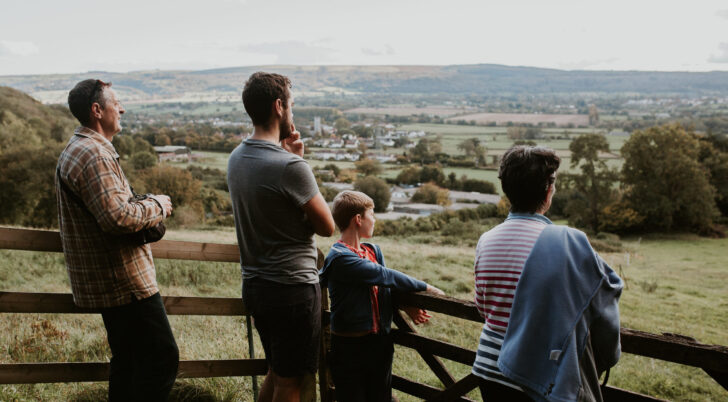
The countryside next to our towns and cities provides millions with health and happiness. In summary, our manifesto calls for:
- 1) Championing and enhancing Green Belt land
- 2) Creating new woodlands and wetlands near urban areas
- 3) Creating a new generation of country and regional parks
- 4) Increasing access to the countryside next door
1. Championing and enhancing green belt land
CPRE:
Labour:
The manifesto mentions:
- ‘Labour is committed to preserving the green belt which has served England’s towns and cities well over many decades.’
- ‘Under the Conservatives, greenbelt land is regularly released for development but haphazardly and often for speculative housebuilding.’
- ‘Labour will take a more strategic approach to greenbelt land designation and release.’
- ‘The release of lower quality ‘grey belt’ land will be prioritised.’
We are pleased to see the commitments made for preserving Green Belt land and taking a more strategic approach as well as the recognition of speculative developments that have been taking place there. While these promises are a positive inclusion in the manifesto, the inclusion of ‘low quality grey belt’ is more concerning since, without proper regulation or definition, this could risk encouraging land degradation.
2. Creating woodlands and wetlands near urban areas
CPRE:
Labour:
The manifesto mentions:
- ‘As part of our plans to improve responsible access to nature, Labour will […plant] millions of trees and [create] new woodlands.’
- ‘Labour will expand nature-rich habitats such as wetlands, peat bogs and forests so families can explore and wildlife can thrive, including on public land.’
The reference to creating new woodlands and expanding wetlands is positive, however, it is disappointing this is not accompanied with specific targets or any other details to demonstrate how these commitments will be achieved.
3. Creating a new generation of country and regional parks
CPRE:
Labour:
It is disappointing that there is no reference to protecting or creating new parks.
4. Increasing access to the countryside next door
CPRE:
Labour:
The manifesto mentions:
- ‘We will improve access to nature, promote biodiversity, and protect our landscapes and wildlife.’
- ‘We will introduce ‘golden rules’ to ensure development benefits communities and nature.’
- ‘Labour will expand nature-rich habitats such as wetlands, peat bogs ad forests so families can explore and wildlife can thrive.’
There are several mentions of nature throughout the manifesto, including commitments to improve access as part of ensuring that no community is left behind. However, we’d like to see more detail on specific policy plans that are not included which would make this area stronger.
Start the rooftop renewables revolution

To protect nature and our treasured landscapes, we should be using more rooftops to revolutionise how the sun can meet our energy needs. In summary, our manifesto calls for:
- 1) A target of 60% solar to be on rooftops
- 2) Making rooftop solar the norm on new buildings
- 3) Making rooftop solar more affordable for people and communities
- 4) Employ a ‘roof-first’ approach to solar
1. Rooftop solar targets
CPRE:
Labour:
There is no reference to rooftop solar specifically, but there is a target for tripling solar power by 2030 which is ambitious.
2. Making rooftop solar the norm on new buildings
CPRE:
Labour:
The manifesto mentions:
- ‘Local power generation is an essential part of the energy mix and reduces pressures on the transmission grid. Labour will deploy more distributed production capacity through our Local Power Plan. Great British Energy will partner with energy companies, local authorities, and co-operatives to install thousands of clean power projects, through a combination of onshore wind, solar, and hydropower projects. We will invite communities to come forward with projects, and work with local leaders and devolved governments to ensure local people benefit directly from this energy production.’
There is no reference to rooftop solar throughout the manifesto. However, we are pleased to see thorough plans for community-led schemes.
3. Making rooftop solar more affordable for people and communities
CPRE:
Labour:
The manifesto mentions:
- ‘The Warm Homes Plan will offer grants and low interest loans to support investment in insulation and other improvements such as solar panels, batteries and low carbon heating to cut bills.’
It is positive that there is specific reference to their plans on cutting energy bills through investing in solar energy and homes, although there is no mention of rooftop solar support specifically.
4. Employ a ‘roof-first’ approach to solar
CPRE:
Labour:
It is disappointing that there is no reference to a rooftop first approach, or mention of ground mounted solar.
Reform the planning system to serve both people and planet
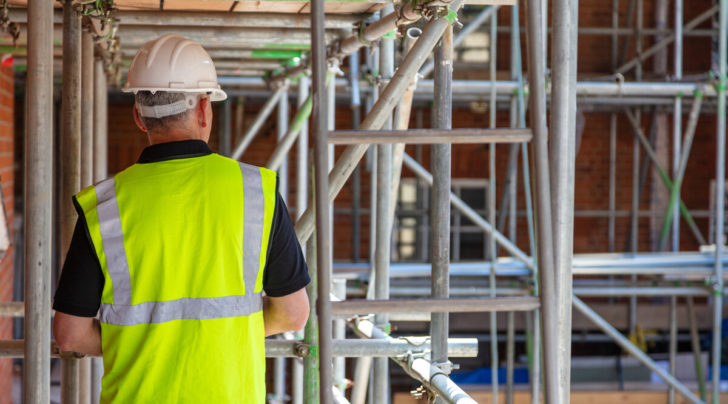
Our planning system needs fresh thinking. In summary, our manifesto calls for:
- 1) A long-term vision for land use across England
- 2) Integrating targets for the evironment and nature into planning policy
- 3) Prioritising urban regeneration to reduce pressure on the countryside
- 4) Make community voices count in what-goes-where decisions
1. A long-term vision for land use across England
CPRE:
Labour:
The manifesto mentions:
- ‘We will introduce a land-use framework and make environment land management schemes work for farmers and nature.’
- ‘We will also update national planning policy to ensure the planning system meets the needs of a modern economy.’
We are pleased to see the specific commitment to a land use framework, although specific details were not included which weakens this promise. There are mentions of changing the planning regime and updating national planning policy, focusing on infrastructure and transport.
2. Integrating targets for the environment and nature into planning policy
CPRE:
Labour:
The manifesto mentions:
- ‘Take tough action to ensure that planning authorities have up-to-date Local Plans and reform and strengthen the presumption in favour of sustainable development.’
There is some reference to sustainability in planning in connection to local development, but this is very brief.
3. Prioritising urban regeneration to reduce pressure on the countryside
CPRE:
Labour:
The manifesto mentions:
- ‘Labour will take a brownfield first approach, prioritising the development of previously used land wherever possible.’
There is specific reference to a brownfield-first approach which we are pleased to see.
4. Make community voices count in what-goes-where decisions
CPRE:
Labour:
The manifesto mentions:
- ‘We will ensure local communities continue to shape housebuilding in their area but where necessary Labour will not be afraid to make full use of intervention powers to build the houses we need.’
We welcome the reference to community engagement opportunities, working in collaboration, and ensuring that communities benefit from planning, however, this it is brief with limited detail refraining it from being a stronger commitment.
Beyond CPRE’s manifesto
Beyond CPRE’s manifesto, it is also worth noting that we were pleased to see the inclusion of commitments to creating nine new National River Walks as well as commitments for decarbonisation.
